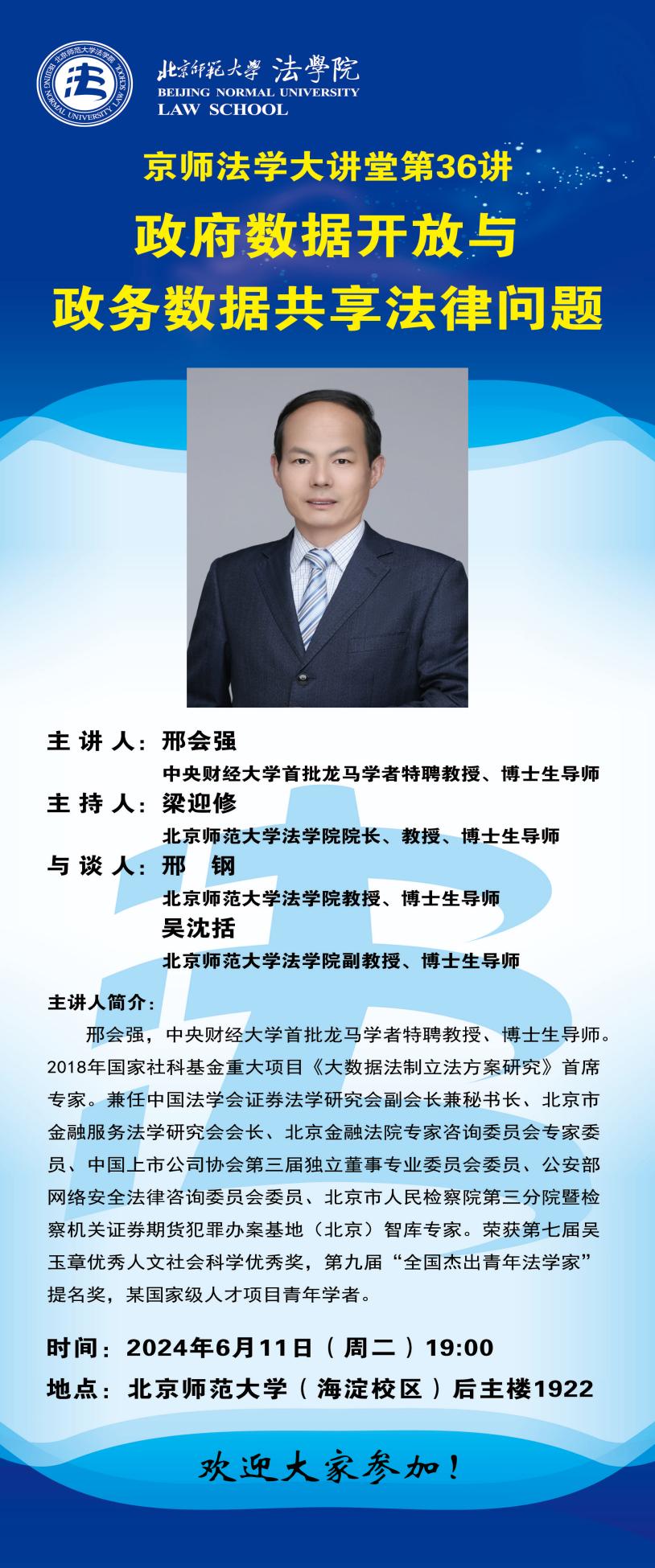
On June 11th, the Beijing Normal University Law School hosted a lecture entitled " Government Data Openness and Government Data Sharing" in the Academic Lecture Hall, Room 1922, Rear Main Building. The event featured the distinguished Professor Xing Huiqiang from the Law School of the Central University of Finance and Economics as the keynote speaker. Professor Liang Yingxiu, Dean of the Law School at Beijing Normal University, skillfully moderated the session. The panel of experts included Professors Xing Gang and Wu Shenkuo from the Law School, as well as Professor Zhao Qiuyan from the School of Sociology of Beijing Normal University. The lecture also drew a passionate audience of scholars and students.
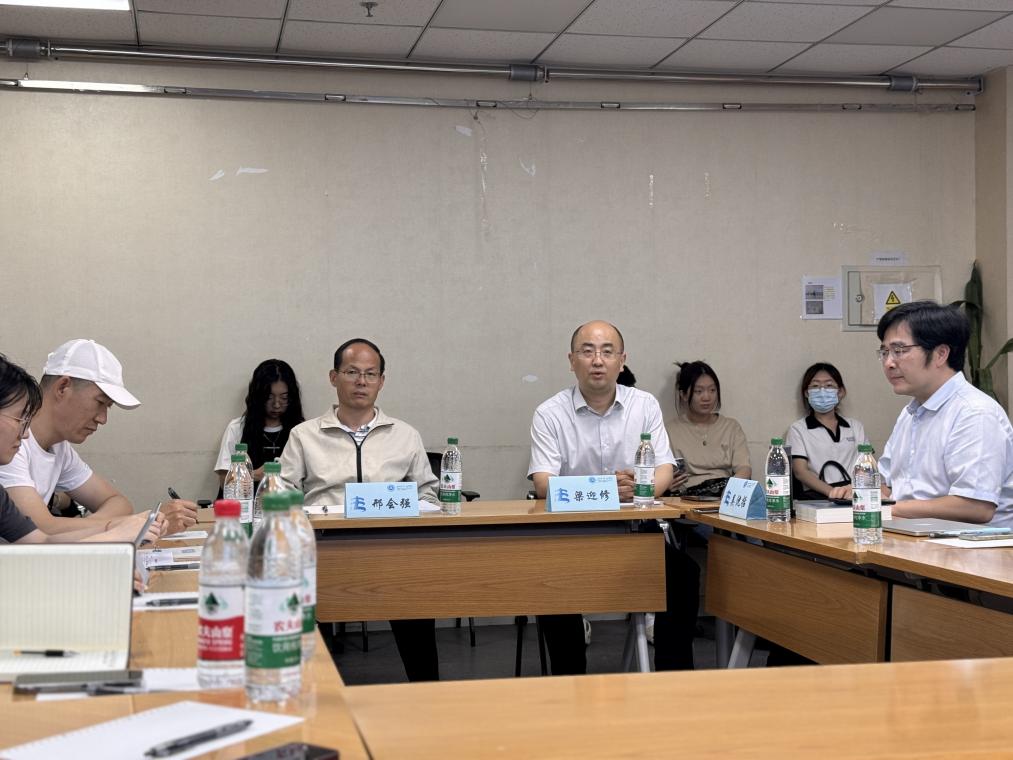
At the beginning of the lecture, Dean Liang Yingxiu, on behalf of the Law School of Beijing Normal University, expressed sincere gratitude to Professor Xing Huiqiang for giving the lecture. He then solemnly introduced Professor Xing Huiqiang and highly praised his outstanding contributions in the field of law. He also introduced his research achievements in leading major projects of the National Social Science Fund. Subsequently, experts and scholars who participated in the lecture were introduced, and a warm welcome was expressed to the teachers and students present.
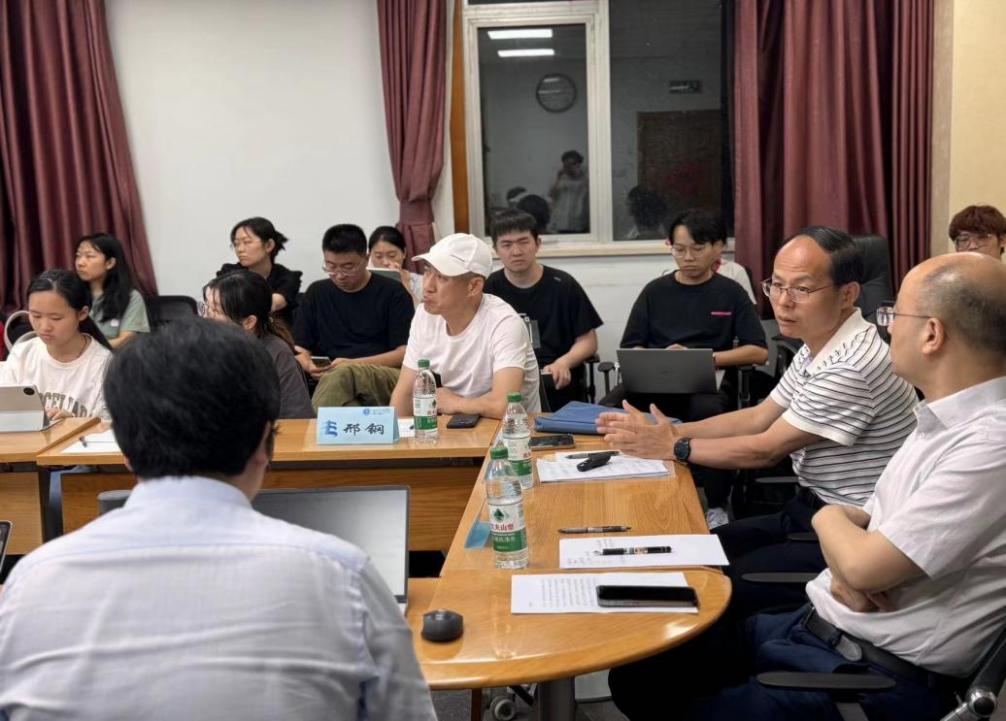
Professor Xing Huiqiang embarked on an in-depth exploration of the legal dimensions of government data transparency and sharing. Commencing with an elucidation of what constitutes government data and the legal parameters of ownership, he offered a comprehensive analysis of the underlying principles, practical applications, and administrative review concerns associated with the open and shared use of government data. Professor Xing posited that the disclosure of government data ought to adhere to the tenets of efficiency, security, and widespread accessibility, underscoring both the significance and the challenges that government data openness presents in the age of big data. Addressing the risk management implications of government data sharing within China, he advocated for the development of a "Government Data Sharing Law" and the refinement of certain clauses within the "Personal Information Protection Law" to better safeguard against potential risks.
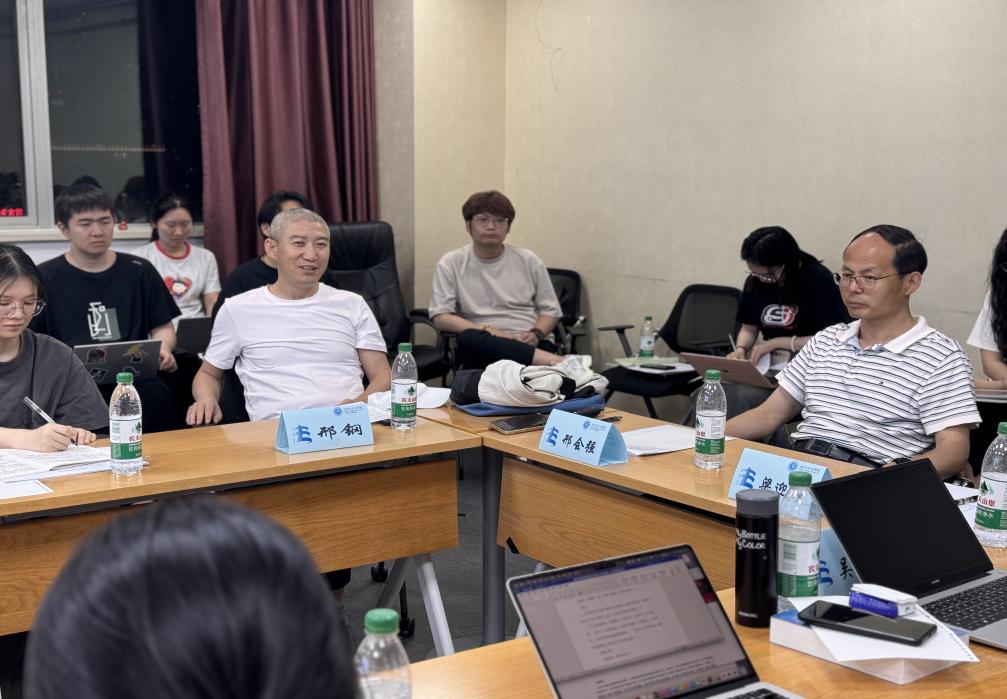
During the discussion session, Professor Xing Gang, Associate Professor Wu Shenkuo, and Professor Zhao Qiuyan provided insightful comments on Professor Xing Huiqiang's report. They discussed the balance between government data openness and personal privacy protection, and provided insights into the legal challenges that may arise in the practical operation of government data sharing.
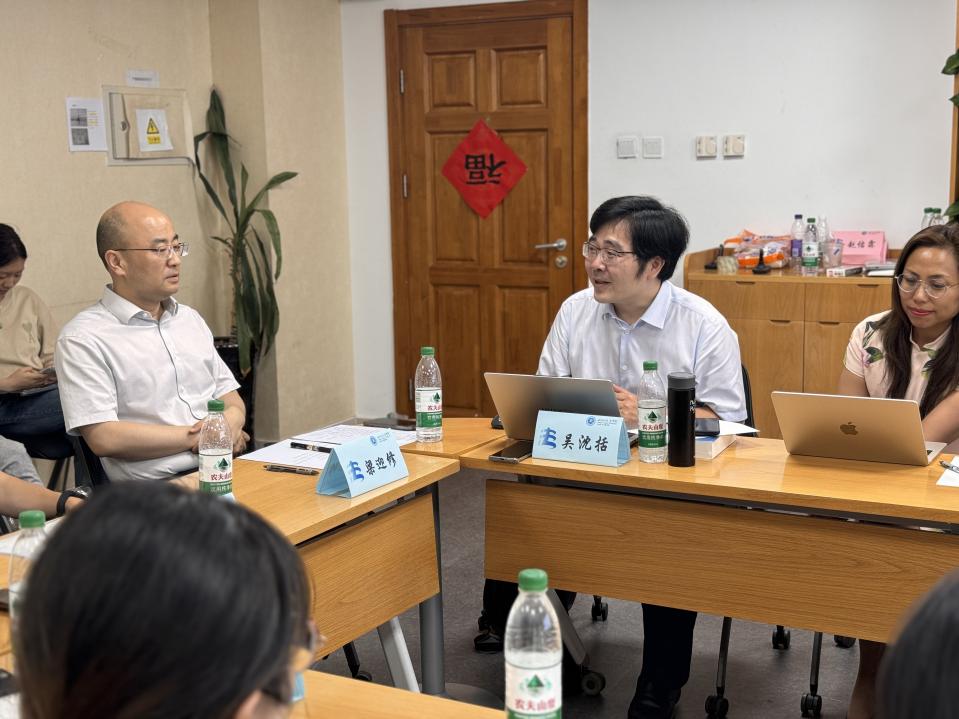
After the lecture, participants engaged in lively Q&A exchanges and in-depth discussions on topics such as the legal framework for government data openness, risk prevention, and personal information protection. Professor Xing Huiqiang provided detailed responses to the participants' questions, further deepening everyone's understanding of such legal issues.
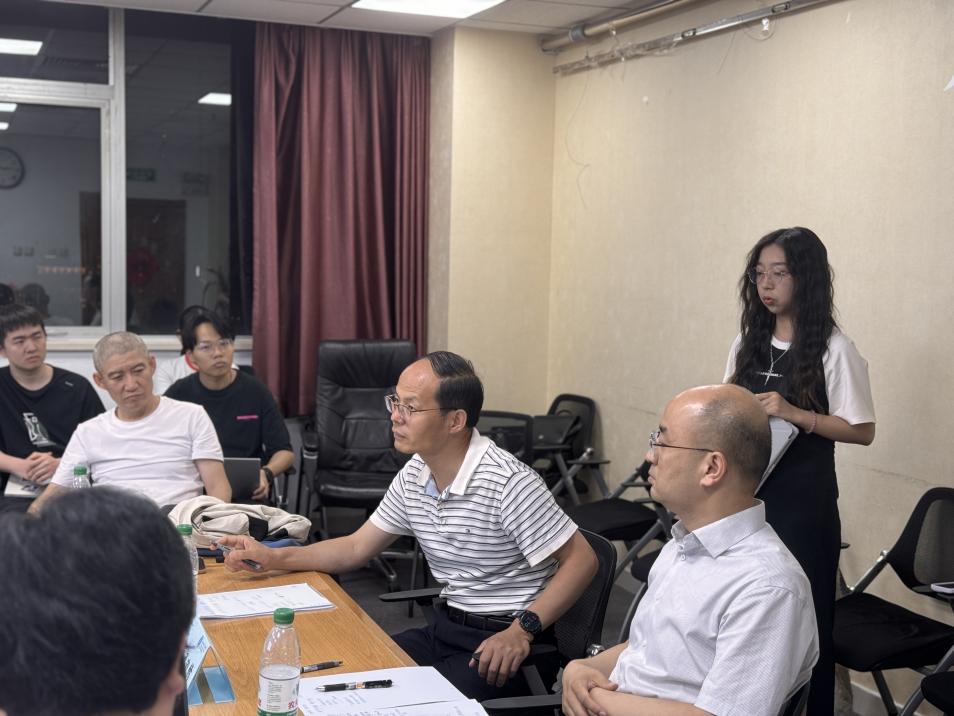
In conclusion, Dean Liang Yingxiu warmly expressed his heartfelt appreciation to Professor Xing Huiqiang for his presence and to the faculty and students for their keen attention and engagement. With these words, the lecture drew to a successful close amidst an atmosphere of harmony and ease. This event not only served as a vital platform for the exchange of academic insights and practical experiences but also furnished invaluable perspectives and recommendations for the future legal governance of government data transparency and sharing.
